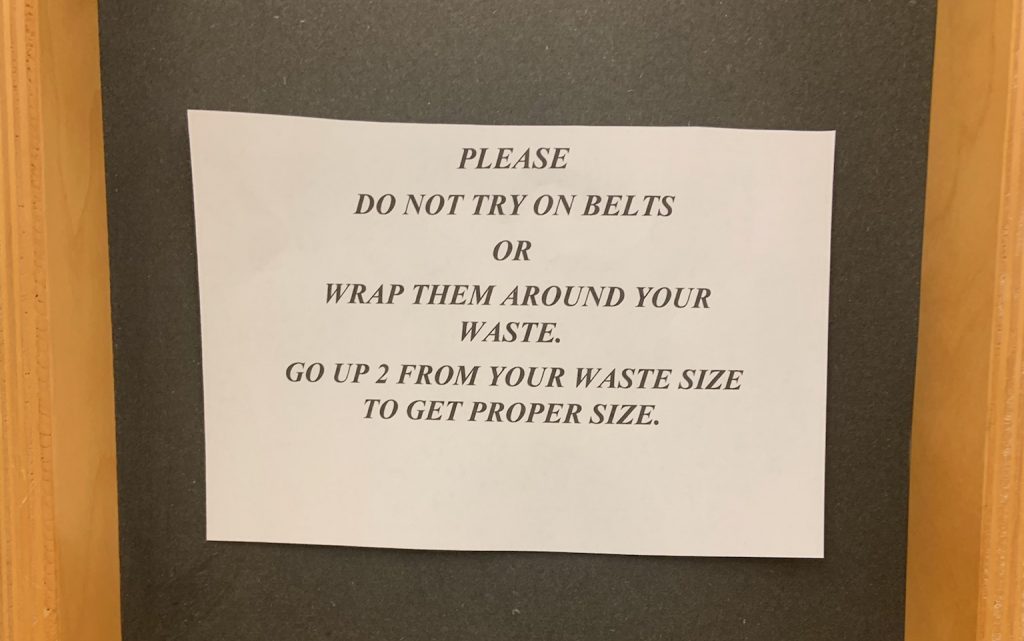
There, they’re, their, you’re, your, it’s, its, amount, number, waist, waste, oversees, overseas, every day, everyday, should’ve, should of, the list goes on. If it sounds the same, it must be the same, right? If I can smash two words together and spell-check doesn’t mark it as incorrect, it must be a compound word regardless of context, right? No and no.
Back in the day, “I seen,” “ain’t,” and a double negative with “nothing” (i.e. “I didn’t do nothing”) used to be the (largely sole) staples of bad grammar. However, very (or is it vary?) rarely did I find those actually written anywhere. I merely heard them spoken. Those days are long gone. No longer is the proper grammar issue defined by a few foul sounding phrases spoken by folks who likely grew up hearing them and therefore carried on the tradition, it has begun to infiltrate all forms of communication.
Screw ups with your and you’re and especially possessives (i.e. employees, employee’s, and employees’) can now be found not only in text messages with family and friends, but also in emails with colleagues, signage posted in businesses, and even in some newscasts. It’s like everybody suddenly forgot what grammar is, and I have a theory as to how this has happened.
Back in the day (especially before the internet took over the world), when you read stuff, it was generally proofread and edited before it ever made it in front of your face. Novels, news articles, the newspaper (an assembly of articles printed on a thick set of pages that would be delivered to households daily), and magazines were the primary literature consumed by the old and young alike; all of which were edited before they ever made it to the public eye (by editors who knew what they were doing).
Nowadays, the primary literature consumed by many individuals (especially the younger demographic) is social media posts, such as Tweets and Instagram/Facebook posts. Are social media posts edited by people who know what they’re doing? No. What are they edited by? Spell-check. Are default spell-check tools capable of detecting heinous violations of grammar rules by words that are spelled correctly? No.
Voila, there you have it. A generation polluted by social media posts riddled with grammatical errors. Youngsters’ naive sponge brains soaking up all the wrong knowledge and going on to compose more social media posts with more grammatical errors, an autocatalytic cycle at its finest.
Improper use of grammar doesn’t actually bother me all that much, and the kind that bothers me is heinous misuse of the wrong word(s), not improper use of a comma or semicolon. The only instance in which I have issue is improper use of grammar by friends and family who are intelligent.
Why is this? This is because I judge books by their covers. When I meet someone, I rapidly categorize him as worthy or unworthy of my time. A significant (but not determining) factor in making that decision is whether he demonstrates the ability to use proper grammar. If you can’t use proper grammar, I almost always automatically throw you into the “not worth my time category.”
Furthermore, if you attempt to assume authority but can’t use proper grammar, I will most likely ignore you out of lack of respect. Nothing better than someone trying to tell me what to do when he doesn’t even know the difference between your and you’re.
Obviously, friends and family are worth my time, and I want to ensure they aren’t written off by other like-minded individuals who use grammatical competency as a filtration method. How do I ensure my friends and family hold their ground in the war against bad grammar? By being the asshole that corrects their texts, social media posts, and speech. Do they like it? No, but the cost of not appearing stupid is worth the sacrifice.
On a more positive note, grammar mishaps are actually a major source of happiness for me (see the photo at the start of this post). I love nothing more than to see an authoritative entity attempting to assume power while simultaneously presenting itself as illiterate. It makes me very happy.
